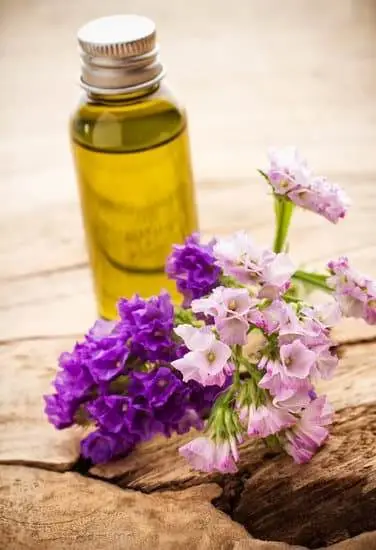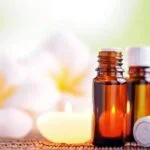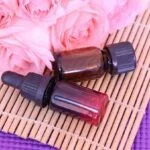Anxiety is a common and often debilitating mental health condition that affects millions of people worldwide. It can manifest in various forms, including panic attacks, generalized anxiety disorder, social anxiety, and phobias. The constant worry, fear, and restlessness associated with anxiety can significantly interfere with daily life and overall well-being. In recent years, there has been growing interest in alternative therapies to help manage anxiety, one of which is aromatherapy.
Aromatherapy is the practice of using essential oils derived from plants to promote physical and psychological well-being. Dating back thousands of years, it has been used by ancient civilizations for therapeutic purposes and relaxation. Each essential oil possesses unique properties that are believed to have various effects on the body and mind.
This article aims to explore the potential benefits of aromatherapy in managing anxiety. We will delve into what exactly aromatherapy entails, the mechanisms behind its effectiveness, and examine the scientific evidence supporting its use. Additionally, we will discuss popular essential oils for anxiety relief and different methods of incorporating aromatherapy into your daily routine.
By gaining a deeper understanding of the relationship between aromatherapy and anxiety relief, individuals experiencing symptoms of anxiety may discover another tool to add to their self-care toolkit. It is important to note that while aromatherapy can complement traditional treatments for anxiety, it should not be viewed as a standalone solution. As always, it is advisable to consult with a healthcare professional when considering new approaches to managing mental health conditions like anxiety.
What is Aromatherapy?
Aromatherapy is a holistic healing method that utilizes the natural properties of essential oils to promote physical and psychological well-being. This section delves into what aromatherapy entails, its historical background, and an overview of the essential oils commonly used in aromatherapy.
Explanation of Aromatherapy
Aromatherapy is the practice of using aromatic plant extracts, known as essential oils, to enhance a person’s overall health and well-being. These essential oils are derived from various parts of plants, such as leaves, flowers, bark, and roots. The extraction process involves methods like steam distillation or cold-pressing to obtain highly concentrated oils that capture the plant’s therapeutic components.
The foundation of aromatherapy lies in the belief that each essential oil possesses unique chemical compositions that can produce specific effects on the mind and body. When these oils are inhaled or applied topically, their compounds interact with receptors in our olfactory system and skin, triggering physiological responses such as relaxation, reduction of stress hormones’ secretion, or even pain relief.
Brief History and Origins
Aromatherapy has been practiced for thousands of years across different civilizations. The ancient Egyptians were one of the first cultures to incorporate aromatic substances into their daily lives for ritualistic purposes and medicinal treatments. Additionally, ancient texts from China and India also documented the use of herbs and aromatic plants for therapeutic purposes.
It was not until the 20th century that aromatherapy gained recognition as a formal practice. French chemist René-Maurice Gattefossé coined the term “aromatherapie” in 1928 after successfully using lavender oil to heal a burn on his hand. Since then, aromatherapy has evolved into a popular complementary therapy used worldwide for various conditions, including anxiety.
Overview of Essential Oils Used in Aromatherapy
There is a wide array of essential oils available for use in aromatherapy, each possessing unique properties and therapeutic benefits. Some of the commonly used oils for anxiety relief include lavender, chamomile, bergamot, rosemary, and ylang-ylang.
Lavender oil is known for its calming and soothing effects on both the mind and body. It has been extensively studied for its anxiolytic properties and is often used to promote relaxation and improve sleep quality.
Chamomile oil is another popular choice due to its ability to reduce stress and anxiety. Its gentle aroma helps create a sense of tranquility while alleviating feelings of tension or worry.
Bergamot oil, derived from the rind of bergamot oranges, has a refreshing citrus scent that can uplift mood and relieve stress. It is commonly used in blends or diffused during times of heightened anxiety or low mood.
Rosemary oil has stimulating properties that can help improve focus, mental clarity, and reduce fatigue often associated with anxiety. Its invigorating scent makes it a useful oil for those experiencing anxious thoughts or nervousness.
Ylang-ylang oil has a sweet floral fragrance known to promote relaxation and increase feelings of joy. It can be beneficial for individuals seeking emotional balance during periods of anxiety or stress.
It is important to note that individual experiences with essential oils may vary due to personal preferences and sensitivities. Experimenting with different oils under proper guidance can help determine which ones work best for managing one’s specific anxiety symptoms.
How Does Aromatherapy Work?
Aromatherapy is a holistic therapeutic practice that harnesses the power of essential oils to promote physical and emotional well-being. Many people wonder how aromatherapy actually works, and understanding its mechanism is key to comprehending its potential benefits for anxiety relief.
Essential oils used in aromatherapy contain volatile compounds that are derived from various parts of plants, such as their flowers, leaves, or bark. These compounds have been found to interact with the brain and body in several ways. When inhaled or applied topically, these aromatic molecules can stimulate certain receptors in the olfactory system and skin, triggering a cascade of physiological and psychological responses.
One key aspect of how aromatherapy works lies in its interaction with the limbic system in the brain. The limbic system plays a crucial role in regulating emotions, memory, and stress responses. When essential oil molecules are inhaled, they enter the bloodstream through inhalation and then travel to the brain, where they can directly influence this system.
Some specific mechanisms by which aromatherapy may alleviate anxiety include activating neurotransmitters like serotonin and dopamine, which are known to promote feelings of relaxation and well-being. Aromatherapy may also modulate the autonomic nervous system, reducing sympathetic activity (responsible for our fight-or-flight response) and enhancing parasympathetic activity (causing relaxation). This can lead to a decrease in heart rate, blood pressure, and overall stress levels.
Scientific Evidence on Aromatherapy and Anxiety
Overview of relevant scientific studies and research
Numerous scientific studies have been conducted to investigate the effects of aromatherapy on anxiety. These studies aim to provide empirical evidence on the efficacy of aromatherapy as a complementary therapy for managing anxiety.
One notable study published in the Journal of Alternative and Complementary Medicine examined the effects of lavender oil inhalation on anxiety levels in patients awaiting dental treatment. The results showed that participants who inhaled lavender oil experienced reduced anxiety compared to those who did not receive any aromatherapy intervention.
Another study published in the International Journal of Preventive Medicine explored the effects of bergamot essential oil on physiological parameters associated with anxiety, such as heart rate and blood pressure. The results indicated that inhaling bergamot oil significantly reduced these physiological markers, suggesting its potential for calming anxious individuals.
Results and findings on the effectiveness of aromatherapy in reducing anxiety
Overall, these scientific studies provide promising evidence that supports the use of aromatherapy as an adjunctive treatment for managing anxiety. A meta-analysis conducted by researchers from Shanghai Jiao Tong University analyzed various clinical trials investigating aromatherapy’s impact on psychological well-being. The analysis revealed a significant reduction in anxiety scores among individuals who received aromatherapy interventions compared to control groups.
Furthermore, research has shown that certain essential oils commonly used in aromatherapy, such as lavender, chamomile, and rose geranium, have anxiolytic (anti-anxiety) properties. These oils contain compounds that interact with receptors in the brain responsible for regulating emotions and stress responses.
Potential limitations and considerations
While there is growing evidence supporting the use of aromatherapy for anxiety relief, it is important to acknowledge some limitations within the current body of research. Many studies have small sample sizes or lack rigorous methodologies, potentially affecting their validity and generalizability. Additionally, the placebo effect could play a role in participants’ responses to aromatherapy interventions, underscoring the need for more controlled studies.
Moreover, individual variations in response and preference for certain scents should be considered. Aromatherapy is a highly personalized therapy, and what works for one person may not work for another. Factors such as personal scent preferences and associations with particular aromas can influence the efficacy of aromatherapy in reducing anxiety.
Despite these limitations, scientific evidence provides valuable insights into the effectiveness of aromatherapy as a complementary approach to managing anxiety. Further research is still needed to establish standardized protocols and further explore the mechanisms by which essential oils interact with the brain to alleviate anxiety symptoms.
Popular Essential Oils for Anxiety Relief
Many essential oils have gained popularity for their potential to alleviate anxiety symptoms and promote relaxation. These oils are derived from various plants and have been used in aromatherapy practices for centuries. While research on the effectiveness of essential oils for anxiety is limited, anecdotal evidence suggests that certain oils may be beneficial in reducing stress and promoting a sense of calm.
One widely recognized essential oil for anxiety relief is lavender oil. Lavender has long been associated with relaxation and sleep, and studies have shown that it may help reduce anxiety levels. Its soothing fragrance can promote a sense of tranquility and aid in relieving stress.
Another popular choice is chamomile oil, which is known for its calming properties. Chamomile has been used for centuries to ease anxiety symptoms and promote relaxation. Research suggests that chamomile oil may inhibit the release of stress hormones, helping to alleviate anxiety.
In addition to lavender and chamomile, other essential oils that may provide relief from anxiety include bergamot, ylang-ylang, and frankincense. These oils are renowned for their ability to uplift mood and promote feelings of relaxation.
| Essential Oil | Benefits |
|---|---|
| Lavender | Promotes relaxation and aids in sleep |
| Chamomile | Calming properties, eases anxiety symptoms |
| Bergamot | Uplifts mood and reduces stress |
| Ylang-Ylang | Promotes relaxation and reduces tension |
| Frankincense | Relieves anxiety and enhances spiritual well-being |
It’s important to note that individual responses to essential oils may vary. What works for one person may not work for another. It’s recommended to experiment with different oils and find the ones that resonate with you personally. Additionally, it’s always a good idea to consult with a healthcare professional before using essential oils, especially if you have any underlying health conditions or are taking medications that may interact with the oils.
Overall, while scientific evidence on the efficacy of essential oils for anxiety relief is limited, many individuals have reported positive experiences with aromatherapy. Incorporating these oils into your self-care routine may provide an added sense of relaxation and promote a greater overall sense of well-being.
Methods of Using Aromatherapy for Anxiety Relief
Aromatherapy is a versatile practice that offers various methods of using essential oils for anxiety relief. Here are some popular methods to consider incorporating into your daily routine:
- Inhalation techniques: Inhalation is one of the most common ways to experience the benefits of aromatherapy. Using diffusers, you can disperse essential oils into the air, creating a soothing and fragrant atmosphere in your living space.
Sprays can also be used to mist essential oils onto pillows, linens, or directly onto your body for immediate inhalation. Another option is steam inhalation, where you add a few drops of essential oil to a bowl of hot water and inhale the steam by placing a towel over your head. - Topical application methods: Topical application involves applying essential oils directly to the skin. This method allows the oils to be absorbed into the bloodstream and provides localized relief. Massages with diluted essential oils are popular as they combine the benefits of aromatherapy with the calming effects of touch.
Adding a few drops of oil to bathwater can create a relaxing soak. Compresses involve soaking a cloth in a mixture of warm water and essential oils and then applying it to specific areas of tension or discomfort.
Inhalation Techniques
- Diffusers: Utilize either ultrasonic technology or heat to disperse essential oils into the air. Ultrasonic diffusers use water and vibrations to produce a fine mist, while heat diffusers use gentle heat to evaporate oils.
- Sprays: A convenient way to incorporate aromatherapy on-the-go, sprays allow for easy application onto pillows, linens, or as a personal fragrance.
- Steam inhalation: Inhaling steam infused with essential oils helps clear respiratory passages and promotes relaxation. To practice steam inhalation, simply add several drops of preferred oil(s) to a bowl of hot water, place your face over the bowl, and cover your head with a towel to trap the steam.
Topical Application Methods
- Massages: Combining the benefits of aromatherapy and touch, massages with essential oils can help relieve tension, promote relaxation, and support overall well-being. Dilute your chosen essential oil(s) with a carrier oil like coconut or jojoba oil before applying it to the skin.
- Baths: Creating a luxurious and calming ambiance, adding essential oils to your bathwater can enhance relaxation. Mix a few drops of essential oil(s) with a carrier oil or an emulsifier (such as milk or honey) before dispersing it into the bathwater for even distribution.
- Compresses: Particularly helpful for localized pain or discomfort, compresses involve soaking a cloth in warm water infused with essential oils and then applying it to specific areas of concern. This method allows for direct contact between the affected area and the aromatic properties of the oils.
Remember, experimentation is key when finding what methods work best for you. Some individuals may prefer one approach over others, so feel free to adjust according to personal preference and comfort level. Aromatherapy provides flexibility in choosing how to incorporate its benefits into daily life.
Personal Testimonies and Success Stories
Aromatherapy has gained popularity as a complementary approach to managing anxiety, with many individuals reporting positive experiences and relief from their symptoms. Personal testimonies and success stories offer valuable insights into the effectiveness of aromatherapy in reducing anxiety and improving overall well-being.
One individual shared their experience of using lavender essential oil for anxiety relief. They described feeling a sense of calm and relaxation after inhaling the soothing scent of lavender through a diffuser. This person found that incorporating aromatherapy into their daily routine helped them manage stress more effectively, resulting in reduced anxiety levels.
Another success story involves the use of chamomile essential oil. One person reported experiencing frequent panic attacks due to their anxiety disorder. After researching natural remedies, they decided to try chamomile essential oil by adding a few drops to their bathwater. They found that the gentle aroma of chamomile helped them feel grounded and less overwhelmed during moments of heightened anxiety.
These personal testimonies align with research suggesting that aromatherapy can have a positive impact on mental health. The scents emitted by essential oils stimulate the limbic system, which plays a crucial role in regulating emotions, including anxiety and stress responses.
Although personal testimonies provide anecdotal evidence, it is important to acknowledge that individual experiences may vary. What works for one person may not work for another due to differences in body chemistry and personal preferences. Therefore, it is crucial for individuals considering aromatherapy as an anxiety management tool to approach it with an open mind and find what works best for them.
Personal Testimonies and Success Stories
| Essential Oil | Testimony |
|---|---|
| Lavender | “Inhaling lavender essential oil through a diffuser helped me feel calm and relaxed, reducing my anxiety levels.” |
| Chamomile | “I added chamomile essential oil to my bathwater, and its gentle aroma helped me feel grounded during moments of heightened anxiety.” |
These personal testimonies highlight the potential benefits of aromatherapy in managing anxiety. It is important to note that aromatherapy should be used as a complementary approach and not a substitute for professional medical advice. Individuals who are experiencing severe anxiety symptoms or have underlying mental health conditions should consult with a healthcare professional before incorporating aromatherapy into their routine.
Precautions and Safety Measures
While aromatherapy can be a helpful tool in managing anxiety, it is essential to take certain precautions and safety measures before incorporating it into your routine. Here are some important considerations to keep in mind:
Firstly, it is crucial to understand that essential oils are highly concentrated substances and should never be used undiluted on the skin. Most essential oils need to be diluted with a carrier oil, such as almond oil or coconut oil, before topical application. This helps to prevent skin irritation or adverse reactions.
Additionally, it is important to note that some individuals may have allergic reactions to specific essential oils. It is recommended to perform a patch test before using a new essential oil topically. Apply a small amount of the diluted oil to your skin and wait for 24 hours to see if any redness, itching, or swelling occurs.
If you have any pre-existing medical conditions or are taking medications, it is crucial to consult with a healthcare professional before using aromatherapy. Certain essential oils may interact with medications or exacerbate certain health conditions. For example, individuals with asthma should be cautious when using essential oils like eucalyptus or peppermint, which can trigger respiratory issues.
Pregnant women and children should also exercise caution when using aromatherapy. Some essential oils may be unsafe during pregnancy or may not be appropriate for children due to their sensitive skin and developing bodies. It is advisable to seek guidance from a healthcare professional who can provide individualized recommendations based on specific circumstances.
Conclusion
In conclusion, aromatherapy can be seen as a promising complementary approach to managing anxiety. The scientific evidence supports the effectiveness of essential oils in reducing anxiety symptoms and promoting relaxation. While it should not be considered a standalone treatment for anxiety disorders, aromatherapy can offer individuals additional support in their journey towards better mental health.
One of the key advantages of aromatherapy is its natural and non-invasive nature. Unlike medication or therapy, aromatherapy does not come with significant side effects or require extensive training. It can be easily incorporated into daily routines through various methods such as diffusers, massages, or steam inhalation. This accessibility makes it particularly appealing for individuals who prefer holistic approaches to their well-being.
It is important to note that each person’s experience with anxiety is unique, and what works for one individual may not work for another. Aromatherapy should be approached as part of a holistic self-care routine that includes other strategies such as exercise, mindfulness, and social support. Consulting with a healthcare professional before incorporating aromatherapy into one’s routine is also crucial to ensure any potential allergies or contraindications are taken into account.
Overall, while more research is needed to fully understand the mechanisms behind how aromatherapy affects anxiety at a biochemical level, the positive anecdotal evidence combined with scientific studies suggests that it has potential benefits. Whether it is the soothing scent of lavender oil or the invigorating properties of peppermint oil, aromatherapy offers individuals an alternative tool in managing anxiety and promoting overall well-being.
By taking an individualized approach to anxiety treatment and exploring different options like aromatherapy, individuals can empower themselves in their pursuit of mental health and find what works best for them.
Frequently Asked Questions
What essential oil is best for anxiety?
Lavender essential oil is often regarded as the best essential oil for anxiety. Its soothing and calming properties have been extensively studied and have shown promising results in reducing anxiety levels.
The aroma of lavender has been found to promote relaxation, reduce restlessness, and even improve sleep quality. Many people find the scent of lavender uplifting, helping to relieve stress and promoting a sense of calmness.
Can aromatherapy calm you?
Aromatherapy can indeed help calm you. The use of essential oils in aromatherapy has been practiced for centuries as a means to promote relaxation and reduce stress.
When we inhale the aroma of specific essential oils, our olfactory system sends signals to our brain, affecting our mood and emotions. Certain scents, such as lavender, chamomile, or bergamot, have been found to have calming effects on the nervous system and can induce a state of tranquility and relaxation.
Can aromatherapy help with panic attacks?
Aromatherapy can be beneficial in managing panic attacks, although it should not replace professional medical advice or treatment. Some essential oils commonly used in aromatherapy, such as lavender or frankincense, are known for their ability to relax the mind and body.
Inhaling these oils during a panic attack may help provide relief by promoting a sense of calmness and reducing feelings of anxiety or fear. However, it’s important to note that each person may respond differently to aromatherapy, so finding the right approach may require some experimentation or guidance from a qualified aromatherapist or healthcare provider.

Are you looking for a natural way to improve your health and wellbeing?
If so, aromatherapy may be the answer for you.





